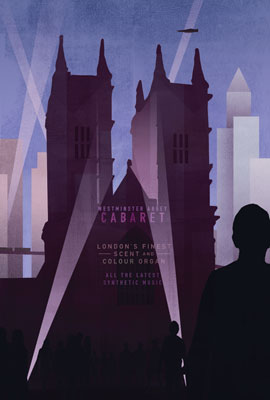As ever, the Spectator carries some splendid and erudite book reviews this week. There are contributions from stellar writers and thinkers such as Margaret MacMillan, Susan Hill, Alexander Chancellor and John Sutherland. Here is a selection.
Margaret MacMillan is captivated by Edwardian Opulence: British Art at the Dawn of the Twentieth Century, a ‘lovely lush book’ edited by Angus Trumble. But, even as she peruses the glorious pictures and accompanying essays, her mind cannot escape the horrors of what the painters had overlooked and what was to come:
‘The Edwardian nostalgia, well-illustrated here, for an older world was rather like the passion for organic farming and the slow food movement of today: a longing to return to a simpler world without giving up all the benefits of the modern. Edwardian painters generally showed sunny landscapes with children playing and happy labourers. They had less to say about the miseries of rural poverty.’
Cressida Connolly is mad about Wreaking, the new novel by James Scudamore.
‘There can be no doubting the remarkable scope of this writer’s imagination, nor the skill of his prose. He has a genius for atmosphere: ‘anterooms that smelled of dust burning off electric fires’; people in their houses at dusk ‘soaking in the blue wash of television’; an old hut heated by sunlight which ‘brings up sweetness from a coil of fly paper that spirals lazily in the window. The walls bleed with resin.’ The section which introduces the crippled criminal and his over-sized helper — and their dark labyrinth hidden beneath London railway arches — is a brilliant tour de force.’
Susan Hill has only one cavil with Michael Arditti’s meaty new novel, The Breath of Night:
‘Philip [the central character] is writing a novel, which becomes the story he is investigating. Does this make that story truth or fiction? It is narrated alternately by Father Julian and, some years later, by Philip. Whose story should we believe? Who is the character and who the novelist? This is a very tired fictional device and its use does nothing much to improve or add greater depth or further dimensions to the story. Indeed, because it is irritating, it detracts from the whole. I wish an editor had dissuaded him [Michael Arditti] from playing textual games. He is far too good a writer to need them.’
Alexander Chancellor enjoys the verve of Edward Jay Epstein’s account of 54 ‘unsolved crimes’, The Annals of Unsolved Crime.
‘Not all the crimes in this book are strictly speaking ‘unsolved’ — some just have peripheral mysteries attached to them — but the ones that tend to defeat investigators most often are air crashes (like those that killed Dag Hammarskjöld of the UN, Lin Biao of China, and General Zia of Pakistan) in which no witness survives and the condition of the plane’s wreckage is such that it is impossible to tell if sabotage has been involved. Crimes perpetrated by government intelligence services are also extremely hard to crack because of the thoroughness and skill that has typically gone into their preparation and execution. While acknowledging this, Epstein comes nevertheless to the conclusion that the death in London in 2006 of the former KGB officer Alexander Litvinenko was not the consequence of a murder.’
In addition to those reviews, we have John Sutherland’s take on the Folio Society’s illustration competition (see above), and he says that special illustrations will be vital if the future of print is to be bright. Joanna Kavenna reads two fascinating and novel biographies of Niccolò Machiavelli, both of which ask if Machiavelli was Machiavellian. And Mark Mason charts the extraordinary rise of the Rwandan cycling team, as reported in Land of Second Chances by Tim Lewis.
Subscribers, you can read all of this in your print issue or by visiting the books page. Non-subscribers, you can join us today:
Offer of the summer: Three months’ FULL access to The Spectator (iPad, iPhone, web, Kindle Fire and print) for just £12. Click here.






Comments